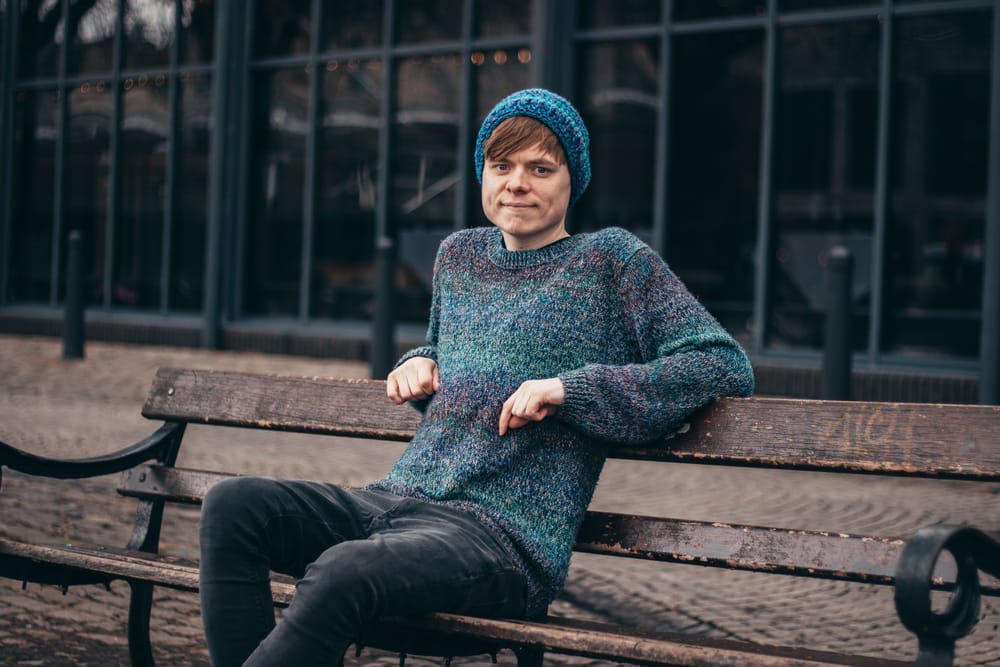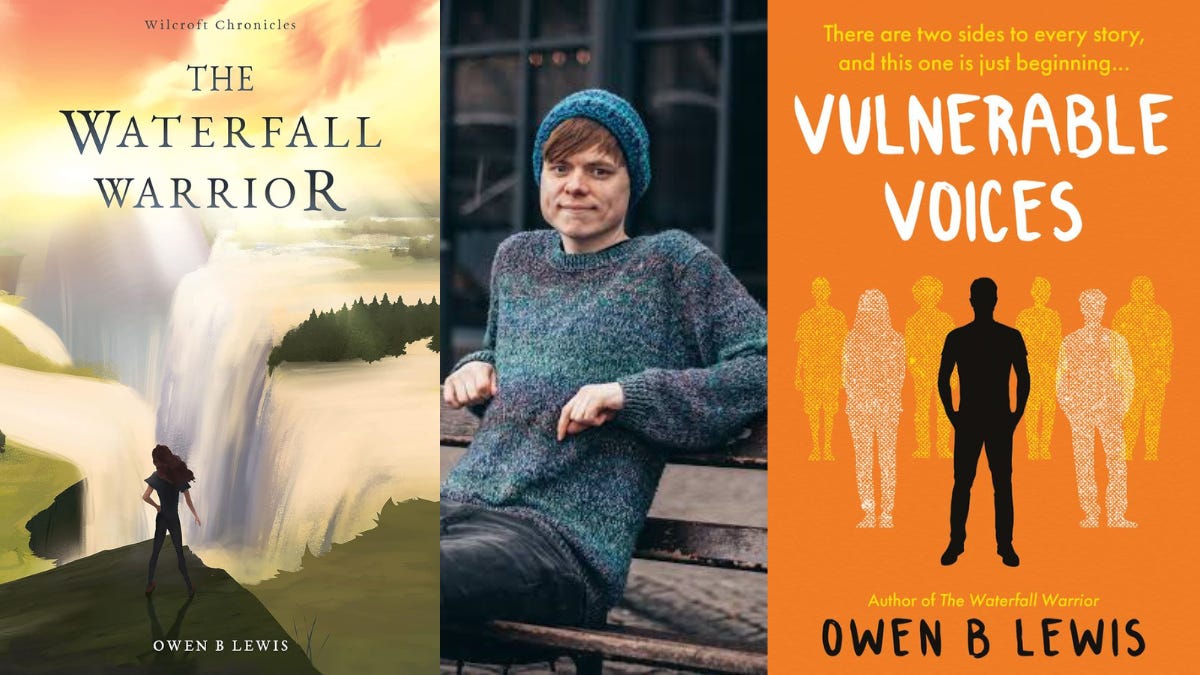Ask the Author special - meet Owen B Lewis
We talk to the author, screenwriter and playwright about his writing and path to publication. Plus news of next week's prompted writing session.
With every author interview I do my preparation inevitably ends up becoming an exercise in how not to ask them if they are a plotter or a pantser.
It’s one of those questions authors hate being asked the most (the other being "where do you get your ideas from?" but I've found a way to disguise that one and sneak it in anyway.) A couple of years ago Alex from Fourbears Books interviewed
in the shop ahead of the launch of his novel The Beresford. Alex later told me Will had threatened to burn his shop down if he asked the plotter or pantser question. I say later, it was about 10 minutes after I'd raised my hand in the Q & A and confidently enquired, "Will, are you a plotter… "By the way, in yesterday’s Guardian Katie Ward wrote about seven things Hilary Mantel taught her about writing and one of them is plotting versus pantsing. “A good third way is to know your ending.”
The very first author to talk to Caversham Writers for one of our Ask the Author sessions was Rupal Patel, who’d just published her first book From CIA To CEO. This week she was a guest on Caversham Writers member Maria Lloyd’s podcast. It’s a great listen, details here, or search for My Local Marketer Podcast on Apple, Spotify etc.
This Week's Meeting
Ask the Author! Meet Owen B Lewis
Caversham Writers member
met Owen at Book-ish in Abergavenny earlier this year. Owen has worked at the bookshop for the last year and helped Louisa organise a signing for her book, published in June. On finding out Owen was the author of two books himself, she immediately thought of us, dear members, and our Ask the Author sessions. So we were immensely grateful to Owen for taking the time to subject himself to a bunch of impertinent questions from me on Tuesday evening.Screenwriting
Those questions started not with his books, though, but his background as a care worker and other writing projects, including a TV drama in collaboration with his partner George. (In the clip below, don’t be confused by the name at the bottom - Owen had logged into Zoom on his partner’s account.)
You can find out more about SQUARE and watch the pilot episode at Owen and George’s website here.
Books
The political activism in SQUARE that Owen talks about in that clip is something that bleeds through into his other writing too. Ostensibly a young adult fantasy novel, The Waterfall Warrior has distinctly political themes dealing with discrimination, equality and prejudice. The protagonist, Hannah, goes through a portal in Epping Forest to another world, one in which animals talk and interact with the human characters but it turns out they are not as equal as it seems.
“In The Waterfall Warrior, I deal with a class system, I feel. The animals are always looked down upon. And you've got the gatekeepers who are like the baddies that put the barriers on people. And so yes, I'm trying to make it like our world, with the political system…”
The action doesn’t just take place in the fantasy world of Therrhain, though. Hannah’s brother Callum and the rest of her family are back in the normal world coping with her disappearance. I asked Owen why it was important to him to have the narrative switch between both worlds.
“Because, even though I love fantasy, I'm someone who just always wants to bring it back to the normal world and human beings and the little things that make us who we are, you know? There's a whole lot of horrible things about humans. But there's wonderful things about us as well. I like to tap into that.”
What are the challenges in writing fantasy?
“The hardest bit is trying to make sense of something that doesn't make sense. But you've got to make it make it sense because you want the reader to really buy into it. So you've really got to work hard on that. That’s why it's good to go back to our world, even though you are trying to make it fantasy. It's good to still go back to what works in our world, and just use things that you know tap into that. When you achieve it, it's it's a wonderful feeling.”
Tapping into the real world is what Owen did with his second book, Vulnerable Voices. Although not a fantasy novel, it is still aimed at young adults and deals with issues involving mental health. In writing the book, Owen drew on his experience as a carer: “my main job for a long time was a support worker in a day centre supporting adults with learning difficulties and mental health problems.”
Owen told me he’s really proud of this book, in part because he never thought it would become one.
“I actually started off with just 2 characters talking to each other. I just thought it was just a very stupid comedy moment with these two characters, and they're quite quirky. But then it just developed…”
Is that a typical starting point for you when you come up with a story? Do you start with a situation, a theme you want to write about, or a character?
“I'm very visual. So I always get like a vision of something or like you said an emotion or a character doing something, and then I try and spin that and think, well, what could I do to connect that with something else that I'd be thinking of, that's worthwhile. I try and focus on something that is bothering me that I think I'd like to work on that and make it something.”
A gold star to anyone who spotted that was how I disguised the dreaded “where do you get your ideas from?” question! (Oh, and while we’re doing a call back to stuff I discussed at the start of this newsletter - for the record, Owen is a pantser!)
Getting Published
Owen initially went down the traditional route to getting published, looking for an agent to represent him in his search for a big mainstream publisher. “That was my goal, but I messaged so many people and just didn't get anywhere.” So he expanded his search to include self-publishing and found hybrid publishers Troubador. “They only take on certain books and they would get it out there with all the bookshops, and they did it in the same way as other publishers do.”
That was Owen’s main takeaway advice for anyone considering a hybrid publisher such as Troubador or The Book Guild, the publisher of his second novel. Drawing on his experience working for Book-ish, Owen advised that whoever you go with, make sure they use a supplier that bookshops can deal with and order your books from. Ask your local independent bookshop who they use as a supplier, if need be, and see if your prospective hybrid publisher can get your book with them.
What’s Next?
Owen has almost finished working on a sequel to The Waterfall Warrior, which he intends to be the second book of the Wilcroft Chronicles trilogy. He’ll let us know when that’s out.
Listen now
Owen has kindly given me permission to upload the recording of our conversation, so put the kettle on and listen to the whole thing here:
Next Week's Meeting
Prompt-Write Night (In Person Event!)
Feeling stuck? Suffering from Blank Page of Doom Syndrome? We have the solution to all your getting started woes! Next Wednesday 25th September I’ll be hosting a prompted writing session. For details of how to join us, click the link below.
What I'm Reading
I’ve been gorging myself on fiction recently, so this week I’ve dived back into the non-fiction pile. In What Just Happened?! by Marina Hyde the Guardian columnist is on top form chronicling some of the madness of the last few years. It’s high class political satire full of acerbic one-liners.
Free To Join, Free To Attend
When Caversham Writers was founded by Canadian writer
she did so with two main principles that I have tried to uphold since taking over: that it be inclusive and open to all writers at any level of experience and in any genre ("If you write, you're a writer") and that it be free to join and free to attend. Substack does have a paid subscription tier, but in keeping with our foundational principle I have no plans to start charging.(If you want to help me keep Caversham writers free to join and free to attend, you can always Buy Me a Coffee - any contributions go towards the running of the group)







Another great read and author interview, Adrian! I personally love to know where author ideas come from. I look forward to the next interview. :)
P.S. Thanks so much for pointing to my podcast episode with Rupal. Her book and ideas are excellent.